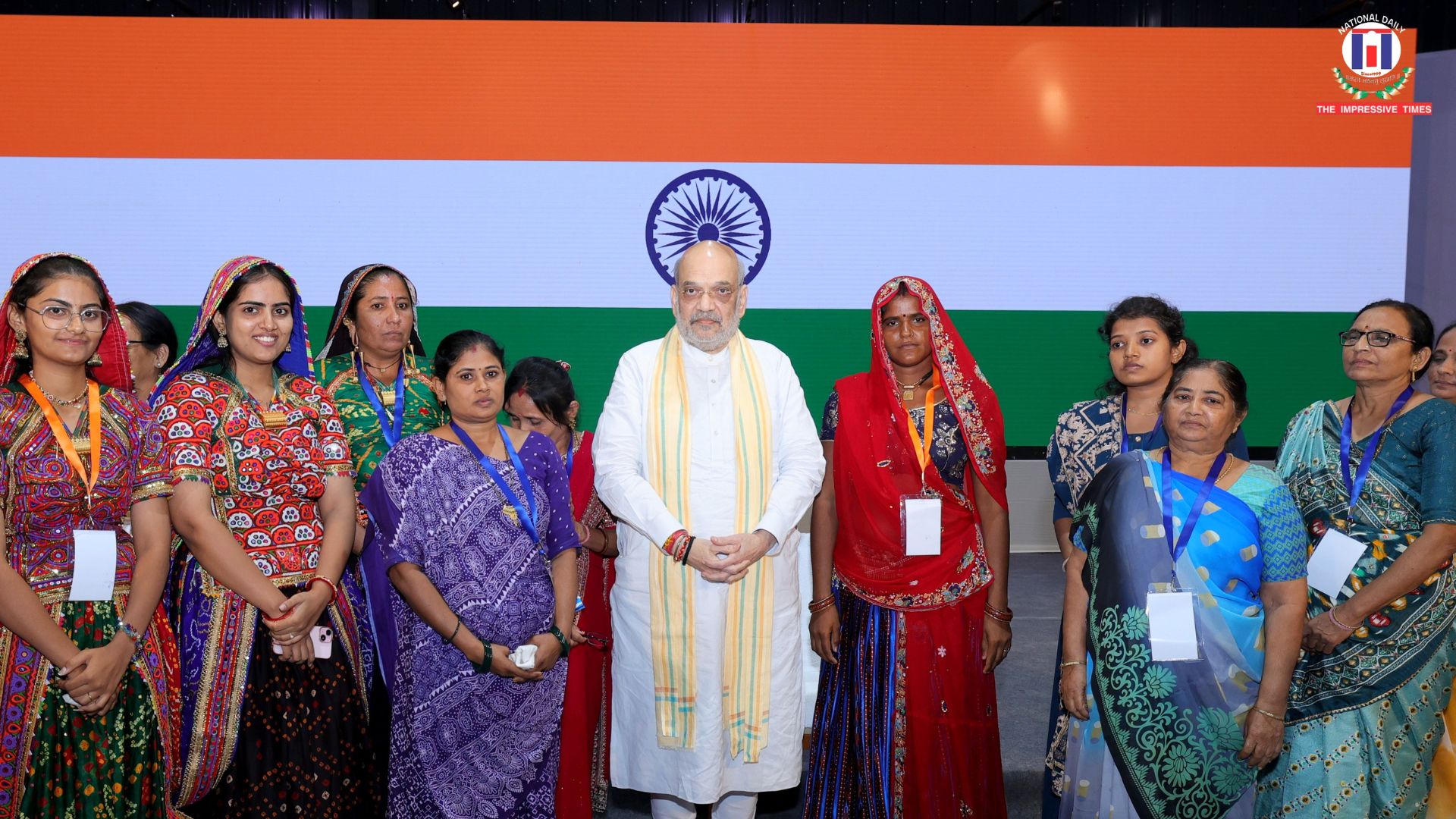
Ahmedabad :Union Home Minister and Minister of Cooperation Amit Shah held a special session titled ‘Sahkar Samvad’ with women engaged in cooperative sectors from Gujarat, Madhya Pradesh, and Rajasthan, as part of the Government of India’s celebration of the International Year of Cooperatives 2025. The dialogue, held in Ahmedabad, highlighted the transformative role of women in India’s cooperative movement and outlined ambitious reforms for rural economic empowerment.
Shah announced the laying of the foundation stone for “Tribhuvan” Sahkari University in Anand, Gujarat, in honor of Tribhuvandas Patel, the pioneer of India’s cooperative movement. He emphasized that the university aims to develop skilled professionals for the sector and noted that 36 lakh women in Gujarat alone are conducting cooperative business worth ₹80,000 crore today, thanks to the foundation laid by Tribhuvandas Ji.
“Despite his remarkable contribution, Tribhuvandas Ji never promoted himself. That’s why we chose to name the university after him—so the nation remembers his silent revolution,” Shah remarked.
The Minister highlighted future plans to revolutionize the dairy cooperative model by integrating:
Cow dung management for organic manure and gas,
Health and nutrition tracking for livestock,
Comprehensive village-level cooperatives covering over 80% of milk producers.

He said these initiatives would be implemented within six months and directed milk cooperatives to install photos of Tribhuvandas Patel to spread awareness of his legacy.
Shah revealed that research is underway to scientifically validate the medicinal properties of camel milk, with Gujarat and Rajasthan governments jointly preparing to launch a scheme to ensure better pricing for camel milk and promote breed conservation.
In a personal note, Shah shared his post-retirement aspiration:
“I want to spend my life among Vedas, Upanishads, and natural farming.”
He promoted natural farming as a healthier, more sustainable, and productive practice, stating it increased his own crop yields by 1.5 times. The Cooperation Ministry has launched a national cooperative body for buying naturally-grown crops and established export cooperatives to transfer profits directly to farmers’ accounts.

He outlined modernization of Primary Agricultural Credit Societies (PACS):
Linked with Common Service Centres (CSCs), Micro ATMs, and Jan Aushadhi Kendras,
Revenue models being developed for PACS,
Citizens can now buy affordable medicines directly from these centers,
Farmers growing maize and pulses can now register on the NCCF app to sell at MSP or higher via NABARD.
Shah announced that the Ministry of Cooperation will organize 10 ‘Chaupals’ across three states each to gather grassroots feedback and use it to guide ministry initiatives.
“I believe my role as Cooperation Minister is greater than that of Home Minister—because this ministry works for the poor, the farmers, the villages, and even the animals of India,” he said.



















No Comments: